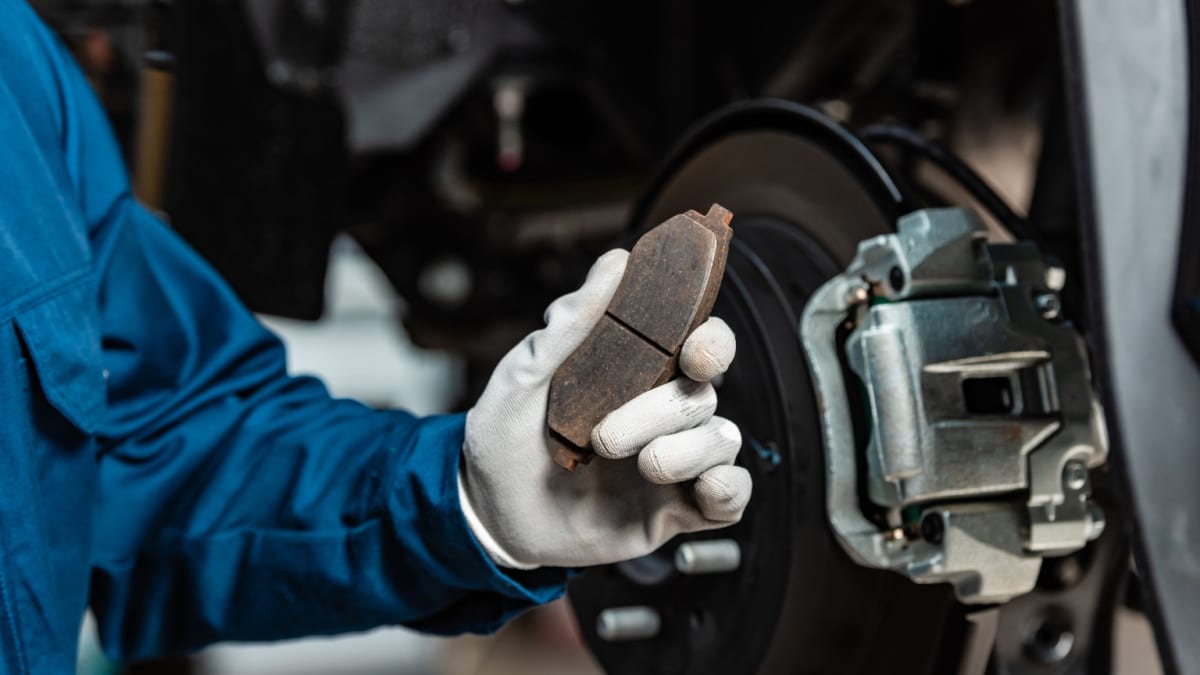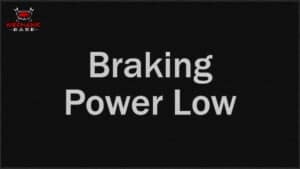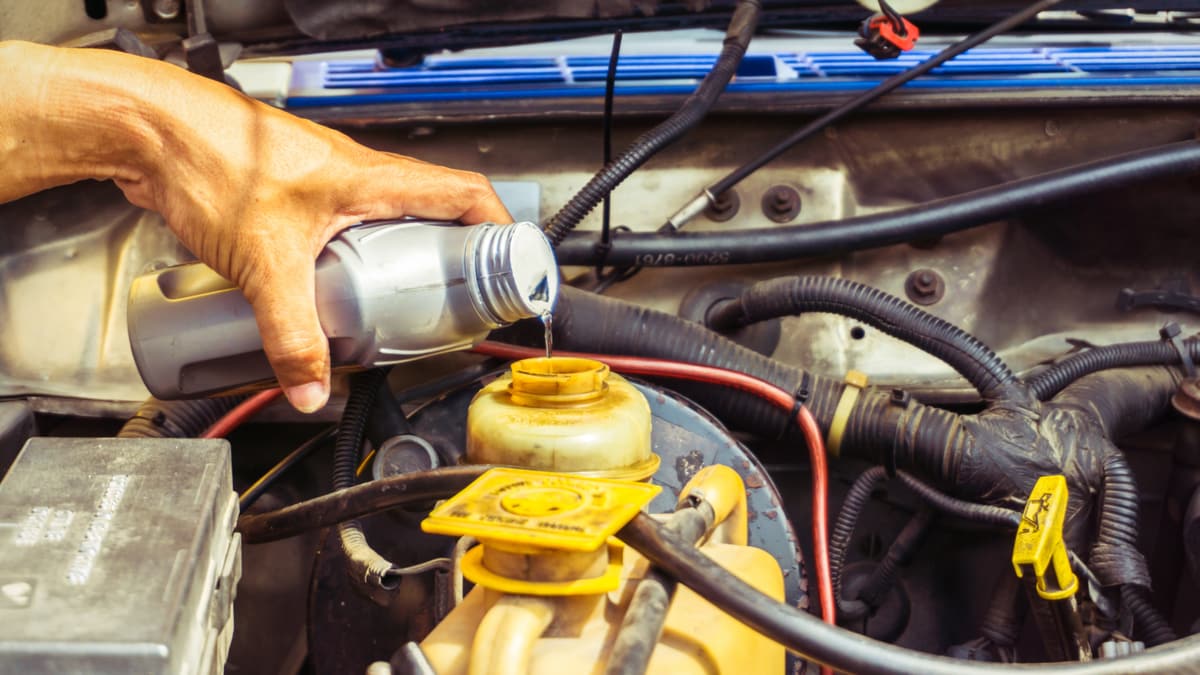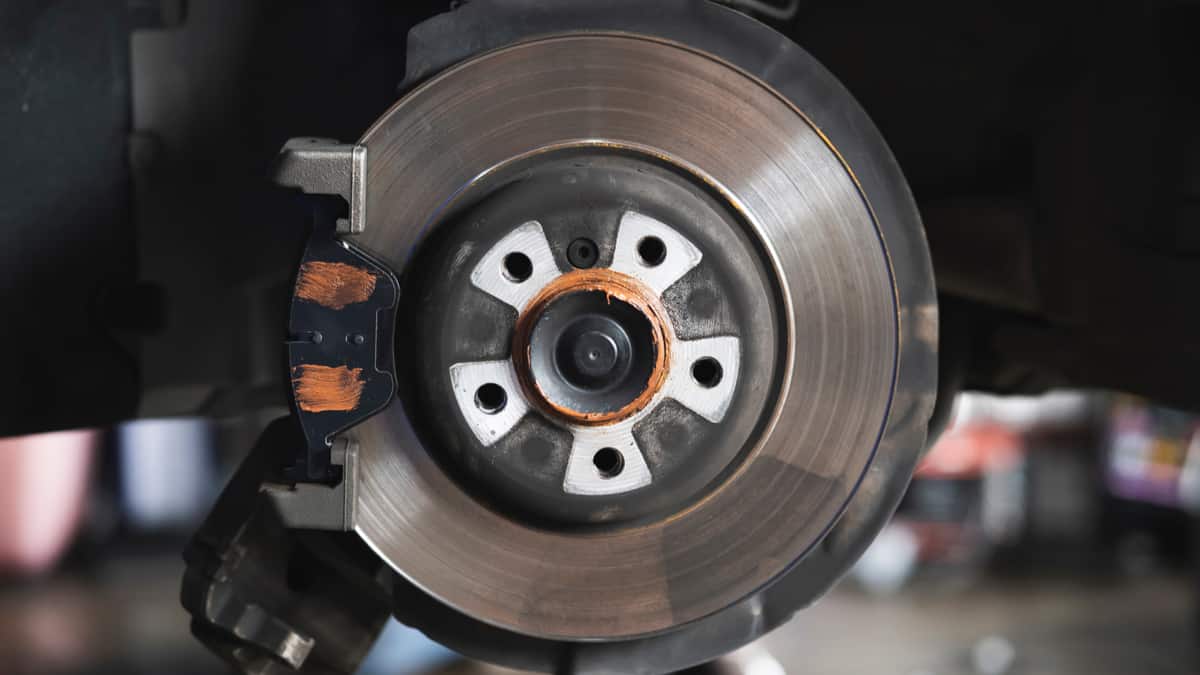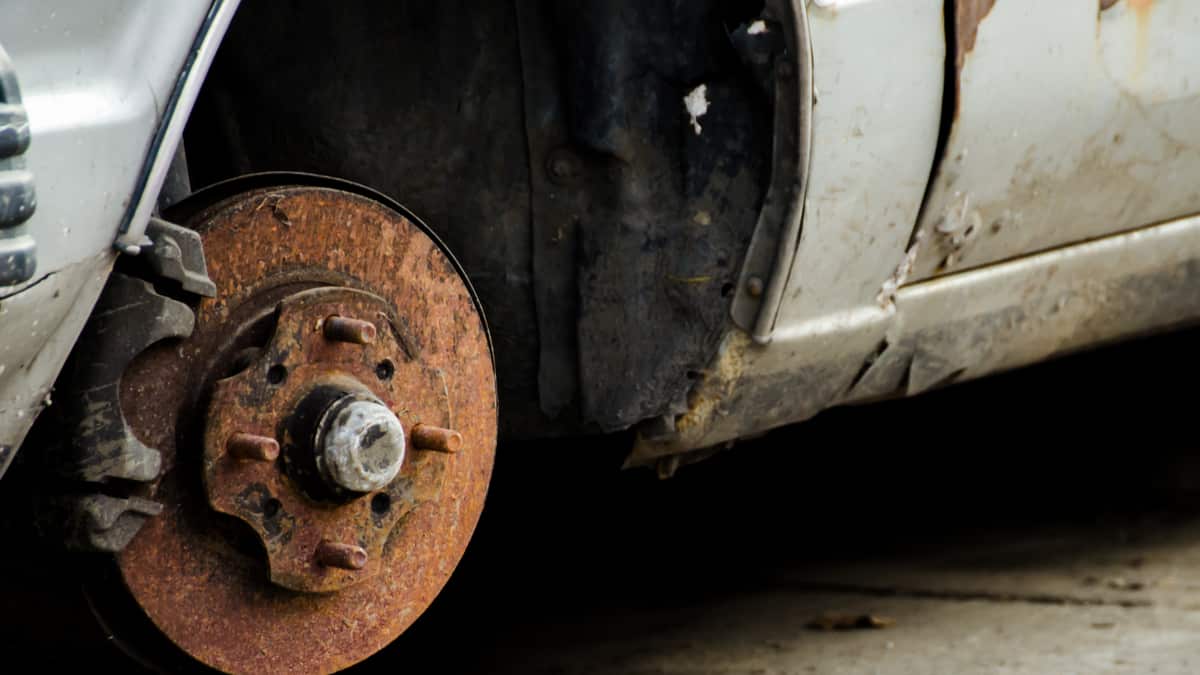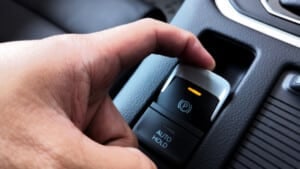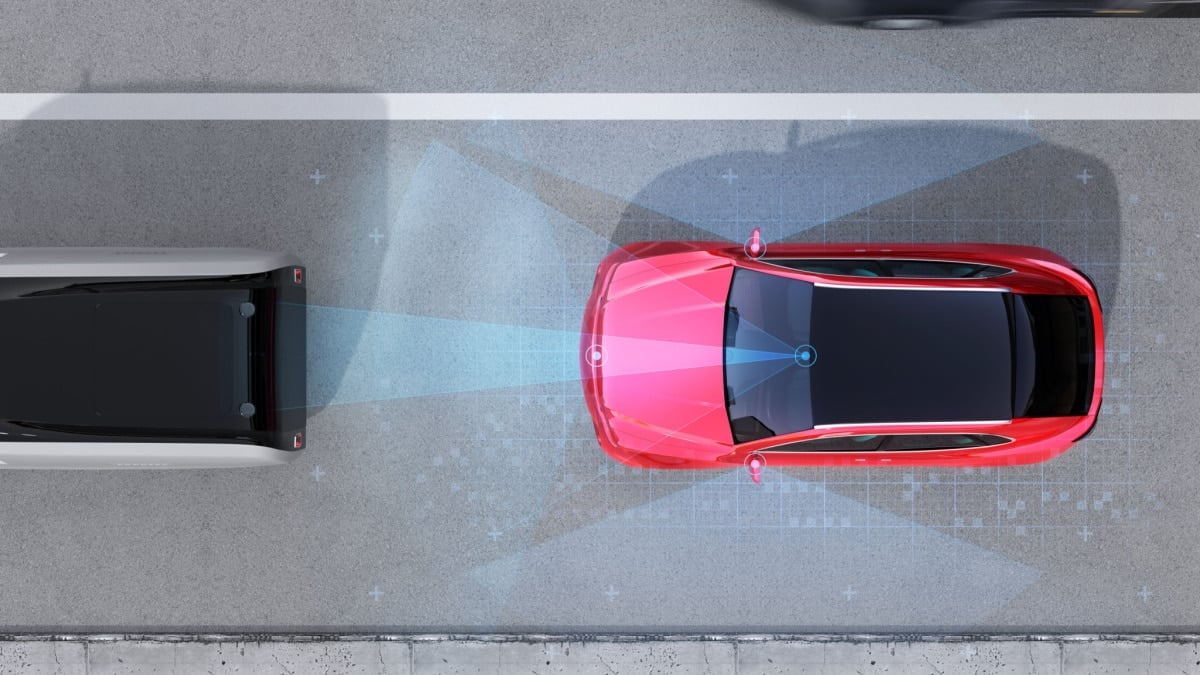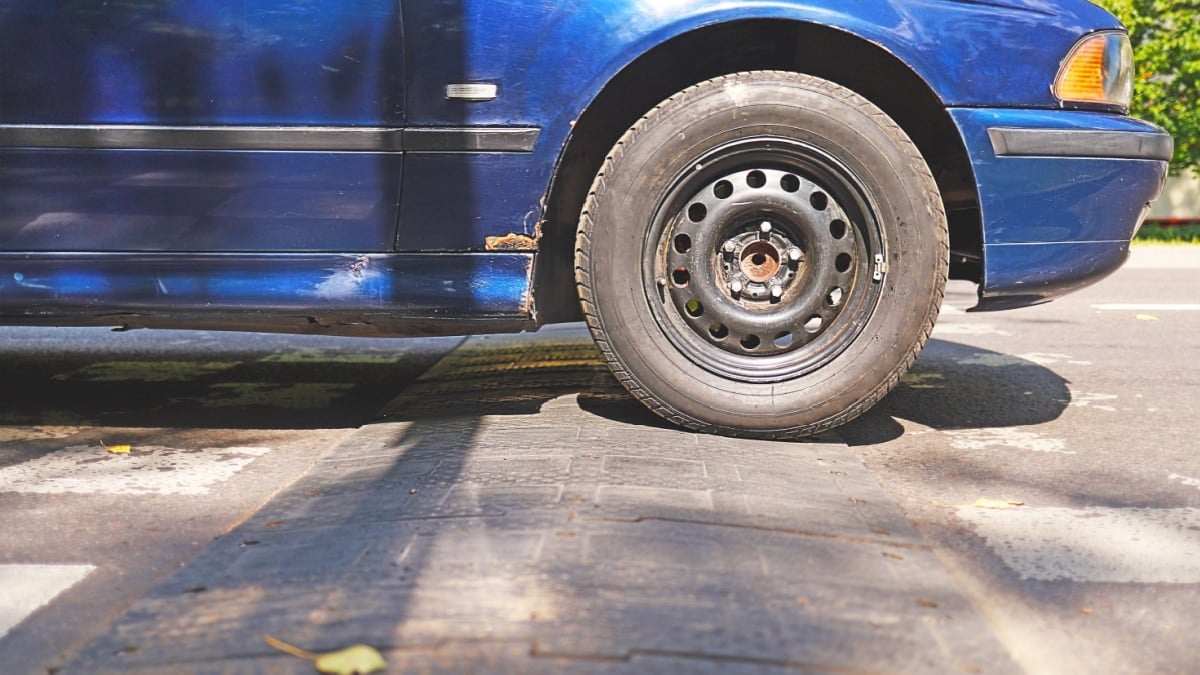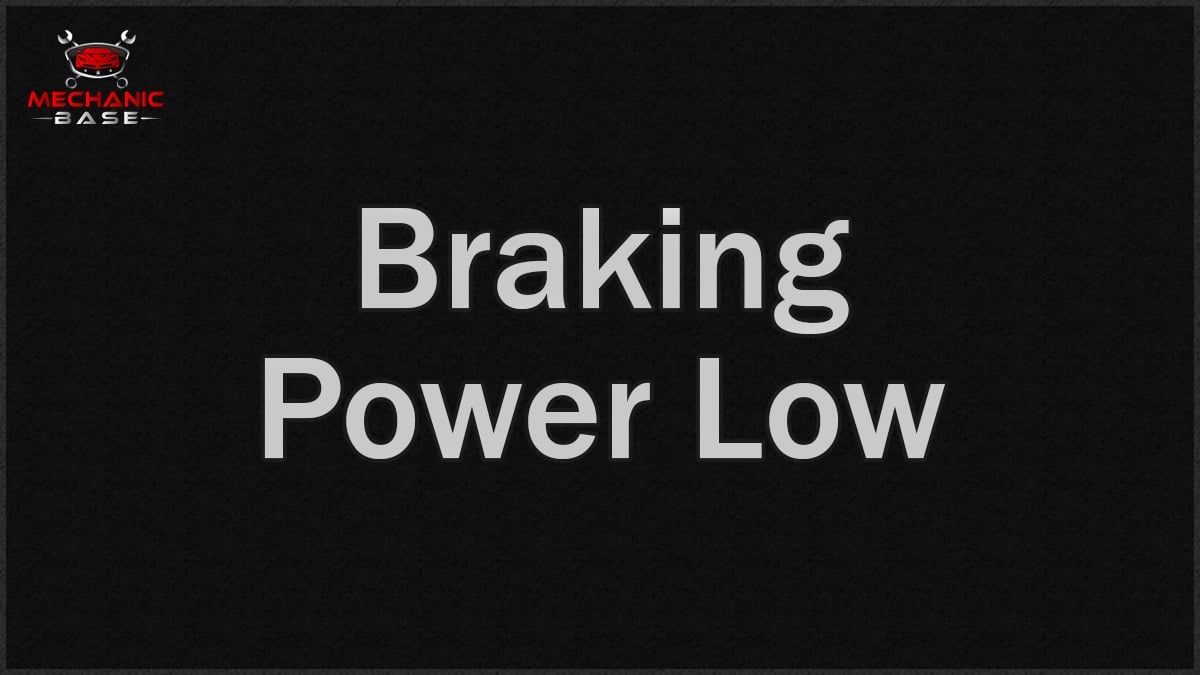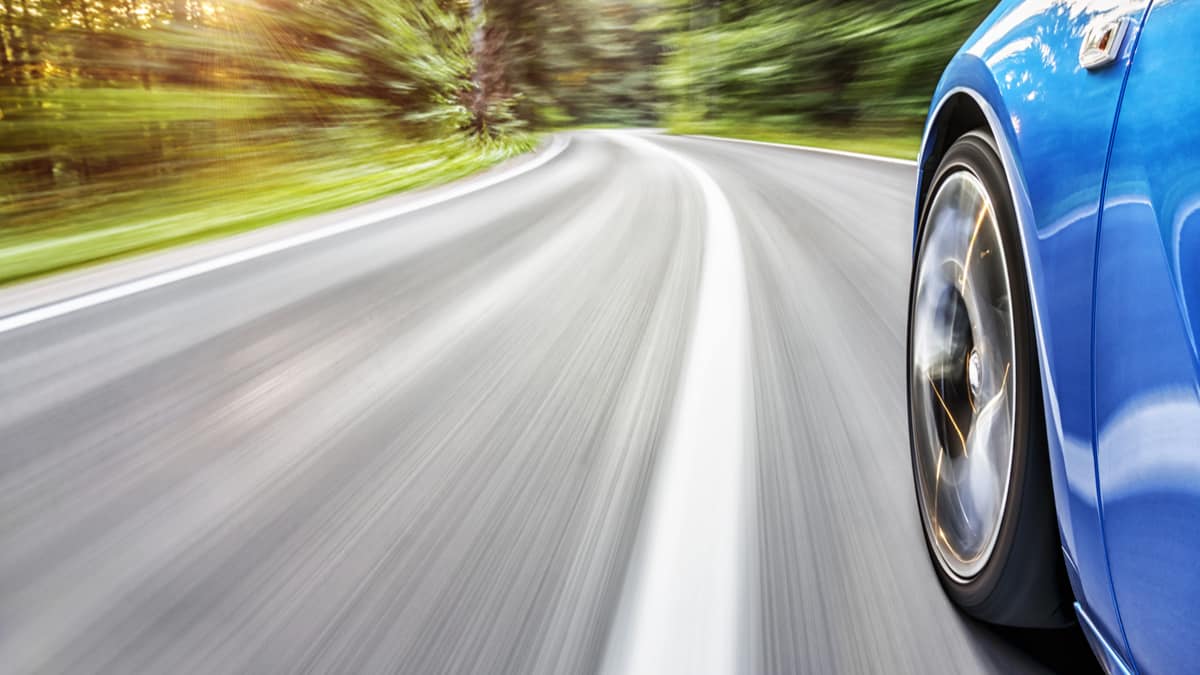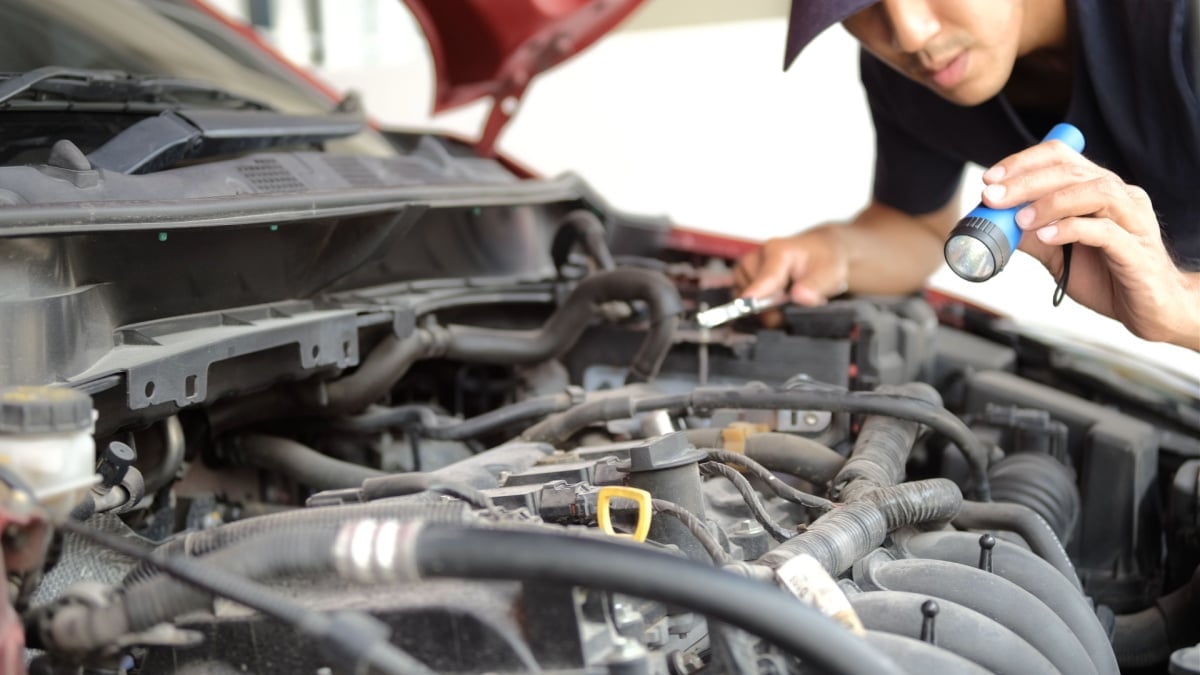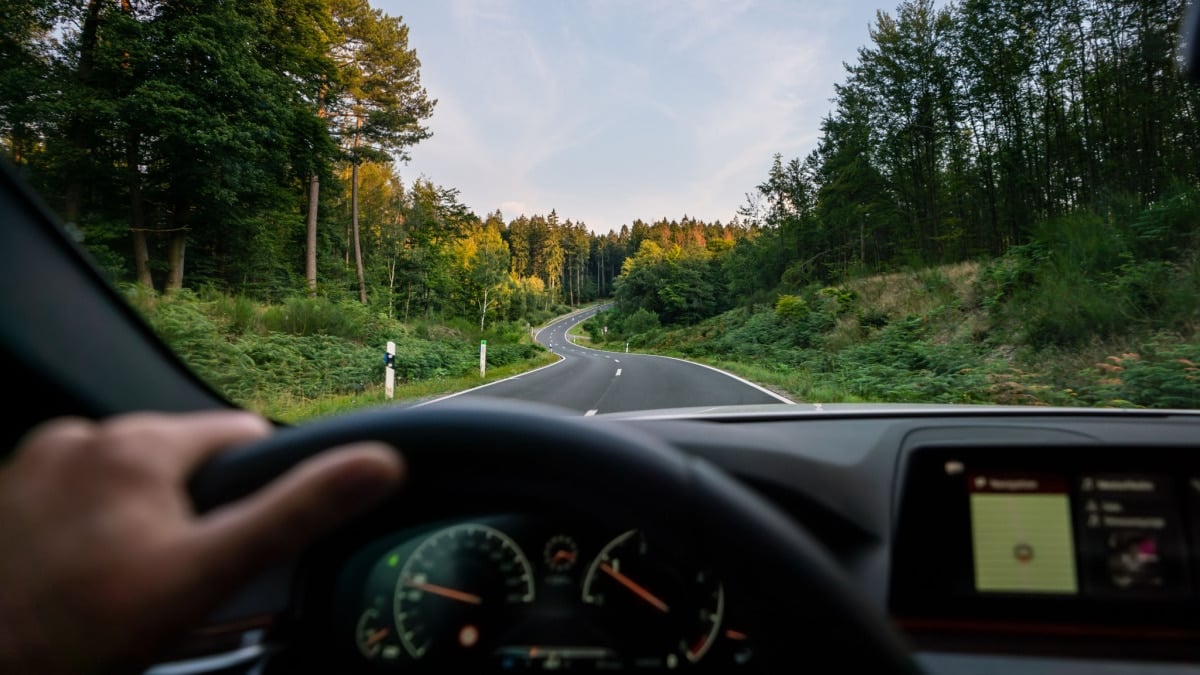Your car’s brakes must be in great working order to ensure safety on the road. The first sign that something is wrong is when there’s noise while braking. So, what does it mean if there is noise when braking at low speeds?
We cover the possible causes, so you can jump on the problem right away. We also show you some ways to fix the brake noise so you don’t have to worry about it anymore. At the end of this guide, we answer a few of your top questions.
Causes Of Noise When Braking At Low Speed
The most common reason for noise when braking at low speed is worn-out brake pads or pads that are a cheap, low-quality brand. The brake rotors might be worn or the shims could be broken. Noise also occurs when a stone is stuck or if the car has been parked.
1. Worn Brake Pads
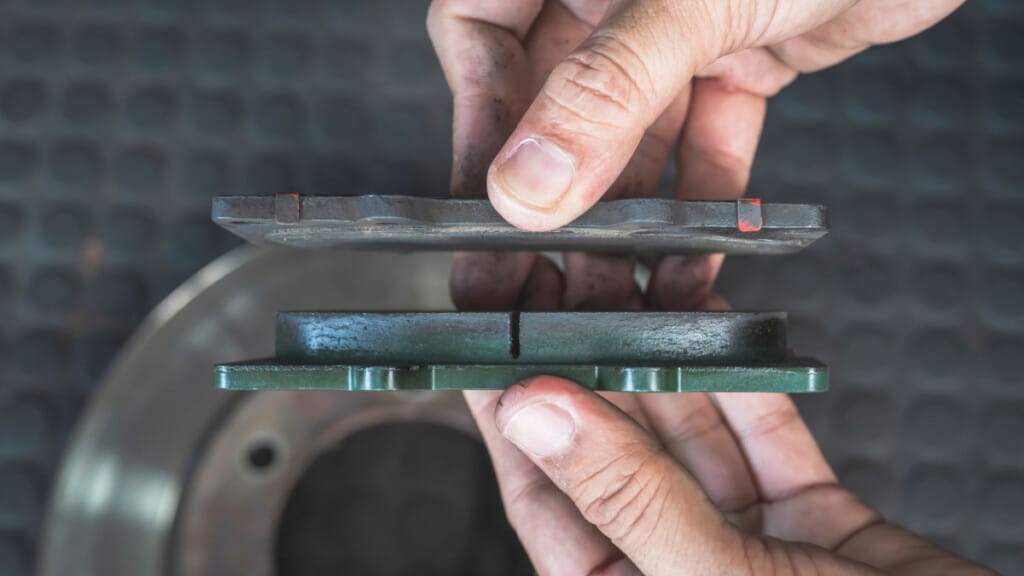
Brake pads are made with a variety of materials, from ceramic to metallic matter, but all of them will eventually wear down. As the brake pads are engaged, the material starts to wear until they are completely gone. Noise occurs before the brakes are worn completely, so you want to pay attention.
If you allow the pads to wear any more after hearing this noise, further damage could occur. The brake rotors could warp, or damage may happen to the calipers.
RELATED: 5 Symptoms Of Worn or Bad Brake Pads (& Replacement Cost)
2. Cheap/Low-Quality Brake Pads
If you’ve just put the brake pads on and you are hearing noises, you know it’s not because the pads are worn. However, the problem could be due to the brake pads you chose to buy.
Cheap, low-quality pads can make a squeaking noise right out of the box. This sound is annoying and most people will avoid buying cheap brakes for this reason. If you can deal with the sound and you need to save some money, these may still be the option for you. Just be sure to pay attention to any new sounds you hear that may indicate wear.
3. Worn Brake Rotors
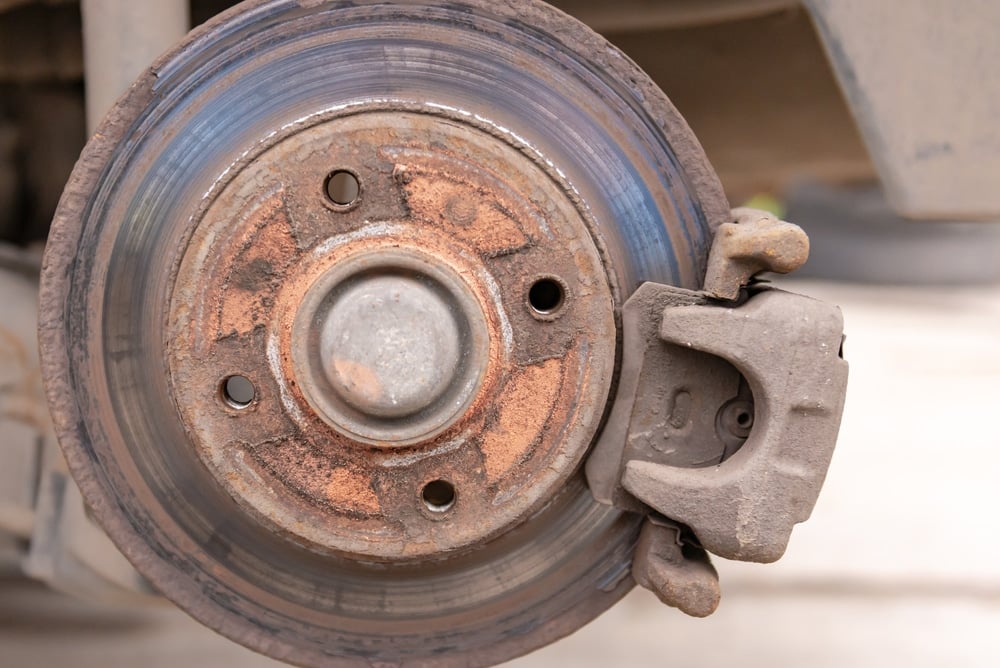
Brake rotors are circular discs connected to each wheel. When the brake pedal is pressed, the pads push into the rotor to stop the rotation of the wheel. When the rotors begin to warp, you may hear an unusual sound while braking. This sound is different from the typical squealing sound of bad brakes. Instead, it’s more of a grinding or rumbling noise.
As the rotors get worse, stopping distances can increase, thereby putting the whole car in danger. You may also notice some vibration as you step on the pedal.
RELATED: 7 Symptoms Of A Bad Brake Rotor
4. Stone Stuck Between Rotor And Pad
When no mechanical failure is the culprit, the noise could be coming from a stone or other piece of debris stuck in the system. Most often, tiny stones get stuck between the brake pad and the rotor.
With this rock in place, the brakes may not work correctly. Damage can be severe if you don’t get the stone out right away, so don’t put off the repair.
5. Broken Shims
The brake pad shim is used to prevent noise, but it can also contribute to it when there’s a problem. Brake shims keep the pads and rotors insulated from vibration.
When the brake shim is damaged or taken off, vibration can occur. You will start to hear strange noises, even while braking at low speeds.
6. Parked Car For Too Long
If you put your car in storage or you haven’t used it, the metal particles on the brake pads rust to the rotors. As you first drive away, this rust is going to create a strange noise. If it’s only been a few days, you may hear a snapping noise at first, but everything should return to normal after the release. Otherwise, prolonged parking can lead to the need to change the pads and rotors before the noise stops.
Additionally, any moisture can create brake noise. If it’s recently rained or you’ve been through a car wash, the brakes might sound strange until they dry off.
How To Fix Brake Noise At Low Speed
If you know a little about brakes and you have some simple tools, you can fix most noises at home. A complete inspection is required to determine the problem before you know what to repair. Here are a few steps to get you started.
1. Determine Which Wheel It’s Coming From
Before you can figure out what to fix, you must first identify where the noise is coming from. It can be difficult to hear where this noise is originating from while you are in the cabin.
If you have a friend to help you, this job is much easier. Have your friend drive around a parking lot at low speeds and brake while you listen from different angles. You should quickly be able to determine which brake or brakes are making the noise.
2. Remove the Wheel and Brake Caliper
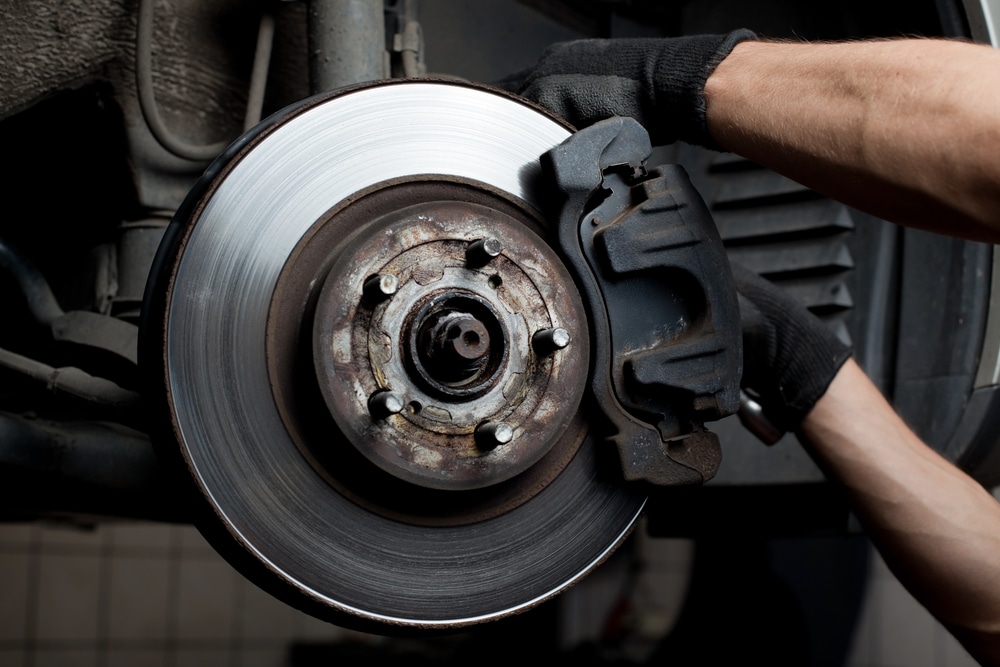
To get to the worn brake pad or rotor, you must remove the wheel. It’s also necessary to take off the brake caliper.
Put the lug nuts and brake hardware in a safe location because you will need to reinstall this when the repair is done. If the brake caliper happens to be stuck, you need to repair this as well.
3. Inspect Brake Pads And Rotor
Look at the brake pad to see if the wear is uniform. If it’s not wearing evenly, you should change the pads. Additionally, if the pad material is less than ¼” thick, it’s time to get new pads.
The brake rotors should appear smooth and uniform. If there are cracks, imperfections or any damage to the rotors, you want to have them resurfaced or replaced.
4. Look For Stuck Stones Or Broken Shims
Your next step is to look for stuck stones in the brake system. Take your time to remove these carefully, so no other damage is done.
Additionally, you can inspect the system for broken shims. With some cars, shims aren’t necessary for brake performance, but a lack of them can cause noise. To be sure, it’s best to replace the pads when the shims end up broken.
5. Choose Better-Quality Brake Pads
If the problem is due to buying cheap brakes, it’s best to upgrade. You can find a variety of brake pads with different materials. The more expensive brakes are going to last longer and provide a noise-free drive too.
Do some research on the brake pads that fit your vehicle. You can read online reviews to see what’s best or ask your local mechanic what’s recommended.
6. Contact A Professional
If you don’t feel comfortable working on your brakes, make an appointment with the local repair shop. It’s best to trust a professional with these tasks if you are unsure because the brakes are a vital safety feature.
When looking for a brake professional, ask your friends and family who they trust. You don’t want to simply schedule with the cheapest shop in town just to save some money because you may find yourself disappointed in the work that’s done.
Why are my brakes grinding at low speeds?
In some cases, the grinding noise indicates that the brake pads are low and need to be changed. However, if the worn brake pads aren’t changed soon enough, damage can occur to the rotors, which would also lead to a grinding and growling sound while braking.
Why do I hear a gurgling sound when I press my brake on slow speed?
Dust can build up on the brakes, which can weaken the signal going to the ABS computer. If the computer believes that the wheel is locked up when it’s not, the ABS can activate at the wrong time. During this activation, you can hear a groaning and gurgling noise, along with pedal vibration.
Is it normal to hear a sound when braking?
In most cases, you shouldn’t hear a noise while braking unless the road surface is imperfect. If this is the case, the noise will go away as soon as you switch roads. Otherwise, there’s something wrong with the brake system that should be looked at right away.
Should I stop driving if my brakes are grinding?
You should stop driving at the first sign of brake problems. For starters, driving with bad brakes is dangerous and could lead to an accident. Secondly, putting off brake repairs can lead to larger issues, which cost you more money and create more of a hassle.
What does a worn-out brake sound like?
As the brake pads start to wear out, you may hear a squealing or squeaking sound. If you allow the pads to continue wearing, you will hear a grinding noise instead. This same noise can be heard when the brake rotors begin to warp, both of which should be dealt with immediately before an accident occurs.
If you hear a random braking noise, there may not be anything to immediately worry about. It could be that the car was sitting for a while or that the brakes got wet. However, if the noise doesn’t go away quickly, you want to take action to figure out what’s wrong.
A complete brake inspection helps you determine what needs to be fixed. The issue could be the brake pads, rotors, shims or another defect. With a quick brake repair, you can get back on the road without any more worries.
Learn more:
- Brake Noise – Causes & Solutions (Low & High Speed)
- Grinding Noise When Braking? (Here’s How To Fix it)
- 5 Cheapest Places to Get Brakes Done
Categories: Brakes, Troubleshooting
